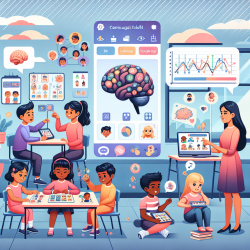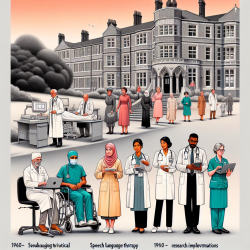In the ever-evolving field of speech-language pathology, data-driven interventions are essential for fostering optimal outcomes in children. A recent study titled A classroom-based intervention targeting working memory, attention and language skills in 4–5 year olds (RECALL): study protocol for a cluster randomised feasibility trial offers promising insights into enhancing cognitive skills in young learners. This blog delves into the key findings of this study and how practitioners can leverage these insights to improve their practice.
Understanding the RECALL Study
The RECALL study was a six-week, classroom-based intervention designed to improve working memory (WM), attention, and language skills in children aged 4-5 years. Conducted in socially disadvantaged areas in the UK, the study involved a cluster randomised feasibility trial with three arms: the RECALL intervention, an active control group receiving an existing Attention and Listening Programme (ALP), and a no-intervention control group.
Key Findings
The study's primary objective was to assess the feasibility and acceptability of the RECALL programme. Key findings include:
- Acceptability: Both health professionals and teachers found the RECALL programme and its manual acceptable and feasible to implement.
- Implementation: The fidelity of the programme's implementation was high, with teachers and health professionals adhering to the prescribed activities and dosage.
- Outcomes: Preliminary data indicated improvements in WM, attention, and language skills among children in the RECALL group compared to the control groups.
Implications for Practitioners
Practitioners can draw several actionable insights from the RECALL study to enhance their interventions:
- Integrate WM Training: Incorporate executive-loaded WM tasks such as listening recall and odd-one-out activities into daily classroom routines to improve attention and language skills.
- Utilize Thematic Play: Employ fantastical play themes to engage children and support the development of executive functions and language skills.
- Collaborate with Educators: Work closely with teachers to ensure the consistent and accurate implementation of intervention activities.
- Monitor Progress: Use standardized assessments and teacher/parent rating scales to track children's progress and adjust interventions as needed.
Encouraging Further Research
While the RECALL study provides a solid foundation, further research is needed to validate and expand upon these findings. Practitioners are encouraged to engage in or support ongoing research efforts to refine and optimize classroom-based interventions for cognitive skill development.
To read the original research paper, please follow this link: A classroom-based intervention targeting working memory, attention and language skills in 4–5 year olds (RECALL): study protocol for a cluster randomised feasibility trial.










